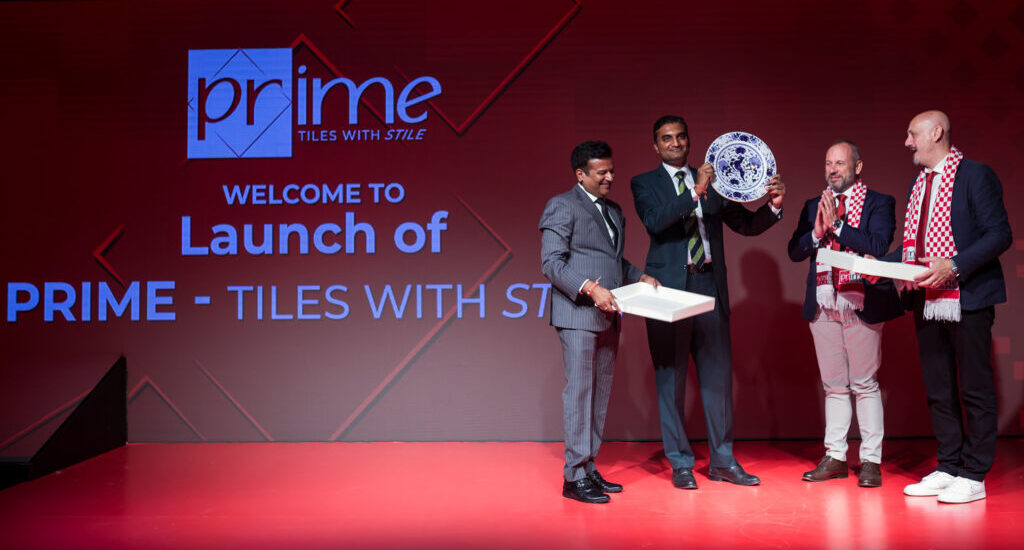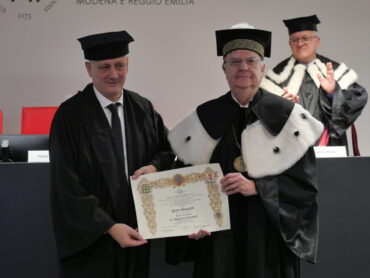Nepalese company Prime Ceramics inaugurates, together with SACMI, a new plant that will meet at least a quarter of the national demand for ceramic tiles. The official ceremony in the capital, Kathmandu, was attended by more than 1,000 people, including top managers from the two companies and representatives of local authorities
The ‘Prime Tiles with Style’ tagline perfectly sums up how Nepalese company Prime Ceramics has approached, together with SACMI, the ceramic manufacturing market. More than 1,000 people, including representatives from local institutions and top managers from the two companies, recently witnessed the birth of a major 70,000 m2 manufacturing facility in the southern municipality of Brindavan, not far from the border with India.
To put the project into context, note that Nepal presently imports tiles worth over 15 billion in the local currency: a broad, segmented market that naturally lends itself to the establishment and growth of a strong local player. Hence the decision by Ashish Garg and Prashant Agrawal, partners and founders of Prime Ceramics, to manufacture ceramics directly and to do so by relying on “the world’s leading provider of ceramic-making solutions”.
Their aim? To build an in-country plant capable of providing more competitive, affordable products. Yet that’s not all: “We selected SACMI because we wanted to stand out for our quality», observed Ashish Garg, President of Prime Ceramics, when he spoke at the inaugural ceremony alongside the President of SACMI, Paolo Mongardi.
“We’ve worked closely throughout every stage of this project, putting together a first-rate team”, pointed out Paolo Mongardi. “This allowed us to achieve the shared goal of establishing a high-quality plant with the best available technology, a plant that provides end consumers with truly excellent products”. The two companies share more than just goals. They also have shared values, with the decision to hold the ceremony in Kathmandu underlining how this project is just “the beginning of a long-term partnership”.
“We see Nepal as a growing market”, adds Fabio Ferrari, Regional Sales Manager of the Tiles BU, “one with significant potential. We believe this project has a valuable role to play, hence our decision to put our best people on it”.
So far, SACMI has supplied all the key technologies, from body preparation to forming, from logistics to firing, from glazing to digital decoration. More specifically, SACMI has supplied a high-efficiency 160-meter FCC 295 kiln, complete with an EUC 295 pre-kiln dryer. On the forming front, Prime Ceramics can count on two PHC 3500 presses, capable of producing tiles as large as 60×120 cm.
To underline the investment in product aesthetics, Prime Ceramics is installing, in addition to the glazing system, the new 12-bar DHD 908, a latest-generation SACMI solution for the wet application of inks and effects. The plant also features a 5-level dryer, an ATI spray dryer plus sorting, handling and storage lines. Moreover, like Nepalese society in general, management at Prime Ceramics are attentive to environmental issues, hence the installation of a complete, SACMI-supplied dust and fume filtration system.
This fully greenfield plant will meet at least a quarter of national demand, employing over 300 people. What’s more, thanks to a combination of strategic positioning (not at 1,400 meters above sea level in Kathmandu itself, but in the south of the country) and outstanding technology, the company is already thinking about exporting to neighboring India.


